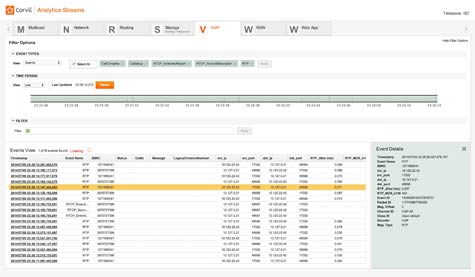At any given moment, massive amounts of raw data are flowing through an enterprise network that could be turned into actionable intelligence to prevent an IT problem from becoming a catastrophic event.
To help divulge that actionable information, Corvil has unveiled Corvil Giga, a streaming analytics platform specifically designed to capture data in real time. Corvil CEO Donal Byrne says that while Corvil Giga is primarily focused on capturing data from the enterprise network, it can also capture data in real time from a variety of systems attached to the network.
The challenge many IT organizations now face is the inability to keep pace with the speed and complexity at which their IT environments currently operate. One simple error can have a cascading effect across hundreds of systems and applications, and that winds up being nothing short of a major disaster, says Byrne.
The Corvil Giga platform provides the ability to automatically discover all data sessions on the network and then select from hundreds of plug-ins to analyze application and IT protocols. IT organizations can also search indexed fields for answers to questions and publish analytic streams into a variety of business intelligence and IT management systems. Corvil Giga also includes adapters for plugging into Big Data platforms such as Hadoop, Kdb, Storm and Splunk.
In essence, the Corvil Giga platform is designed to help IT organizations identify anomalies that may represent anything from a virtual machine spinning out of control to a security threat by analyzing network traffic in real time. Once identified, many of the issues those anomalies represent can be addressed long before they become a major IT problem.
Complexity has always been the enemy when it comes to IT. Unfortunately, with the rise of virtualization and cloud computing, enterprise IT has become more complex by several orders of magnitude. Unless IT organizations have some sort of advanced analytics tools at their disposal to identify potential issues as quickly as possible, they are doing little more than sitting around waiting for the next accident to happen.




